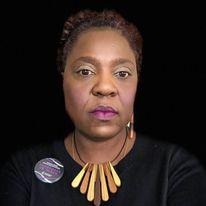Text:
Exodus 2:16-17
The priest of Midian had seven daughters. They came to draw water, and filled the troughs to water their father’s flock. But some shepherds came and drove them away. Moses got up and came to their defense and watered their flock.
Reflection
Shooting 500 litres of water per second 140 meters upward towards the Geneva sky at an average speed of 200 km/hr; the Jet D’eau could easily be considered one of the wonders of Geneva. The fountain is a symbol not only of the strength, ambition and vitality of the ‘Genevois’ and Swiss in general, but also underscores the abundance of water as a resource in Switzerland. A brief walking tour of almost any city or commune in Geneva will reveal smaller fountains, inscribed with either ‘eau potable’ or ‘eau non-potable’, remnants of the days when indoor plumbing was not readily accessible to all.
When water is so readily available and free in Switzerland, it is easy to imagine that all our neighbours are as equally blessed. Yet, at least 30% of Europeans are challenged by lack of access to clean potable water annually and it is expected that this will worsen in successive years (EEA 2021). One is even more hard-pressed to accept that as recently as 2017 there were communities in Bosnia and Herzegovina with limited access to a regular supply of potable water. There, water collected from wells and springs often went dry in the summer. This not only exacerbated the problem, but also meant that women and girls (main water carriers) had to go further and further afield to acquire this most valuable commodity.
Fetching of water is not without challenges. The daughters of Jethro’s income generating potential and productivity was at risk from shepherds who preyed on their vulnerability. This remains a challenge today, as UNESCO reports long-term effects such as “… preventable diseases, stress, musculoskeletal trauma, sexual assault and time lost.” (UNESCO 2021). Water scarcity also affects menstrual hygiene and productivity; resulting in decreased attendance in schools and at work for girls and women; negatively influencing employability and aggravating economic injustice across the board.
Moses’ intervention reduced the time needed to fetch water considerably, so much so that Jethro commented on it. Moses’ response is commendable, but could have been unnecessary had the cultural norms been different. Had the culture been different then (and now), Jethro could have hired persons to ensure his daughters’ well-being, or assigned this task to males. Making females responsible for water- collection for their community’s sustainability is injustice; especially when it places them at risk; and needs to cease immediately.
Switzerland continues to maintain its commitment to potable water, as it is cited as one of the countries that supported the provision of indoor plumbing and potable water in Bosnia and Herzegovina. One could argue that they played the role of Moses in ensuring that the water needs of its neighbours were met, increasing the opportunities for self-sufficiency, education and improved hygiene. It is time to ensure safe water for all and to change the norms around fetching water. This was the focus of the ECI (European Citizens’ Initiative) campaign, supported by the EWN at the World Council of Churches. For, while indoor plumbing is now available across Europe, safe drinking water remains a problem for many; and it is still a key challenge globally. As we move toward affirmation of women’s equality in all spaces tomorrow, may our work and witness affirm this International Women’s Day:
Safe water is not only a sustainable goal – it must be a human right for ALL.
Questions for discussion
- What are the challenges to water access in your region? How are these addressed
- Who are the Moseses in your context, speaking out against gender injustice and water stress, and are they men or women?
Actions
- Partner with organizations working on supplying water for at-risk communities in low-economic countries, either by sending your donations or volunteering to help where possible
- Sign/start a petition to establish laws and infrastructure for safe water; or speak out in spaces of influence – UN, regional bodies, to local politicians (e.g. the ECI campaign for right to water, which generated 2 million signatures: https://right2water.eu/)
- Use the WCC Thursdays in Black (#ThursdaysinBlack) or other campaigns to advocate for change in systemic injustice wherever you are.
Resources
Water Stress is a Major and Growing Concern in Europe, European Environmental agency October 2021
Water and sanitation are still a luxury for millions of Europeans WHO Europe Report
When opening the tap is a first-time experience June 22, 2018
Gender and Water Intersection: Accelerating Gender Equality in the Water Domain: A Call for Action UNESCO WWAP Water and Gender Working Group Position Paper 2021
Equitable Access to Water and Sanitation: ‘WHO and UNICEF Find Inequitable Access to Water and Sanitation in Europe’ – IISD SDG Knowledge Hub December 2019
* Rev.Nicole Ashwood (Nicqi) is an ordained minister with the United Church in Jamaica and the Cayman Islands. She currently serves the World Council of Churches as the programme executive for the Just Community of Women and Men. She is passionate about women and youth concerns.





